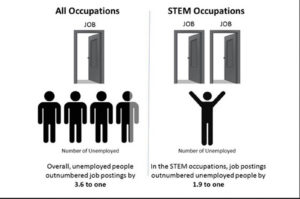
by Marie O’Mahony
With the U.S. set to overtake China as the most competitive manufacturing nation within five years, according to a new study by Deloitte Global and the U.S. Council on Competitiveness, the advanced and smart textile industry has to ensure that it has the skills needed to meet this increasingly high-tech industry. To achieve this, we need to address a number of challenges in attracting and maintaining a highly skilled workforce.
There are lessons to be gained from approaches in Japan and Europe where vocational and on-the-job training feature more highly than in North America. But training facilities are emerging here, much directed at local industry needs and opportunities. Great Bay Community College in Rochester, N.H., is one example as their award winning Advanced Technology and Academic Center (ATAC) combines technical and composites manufacturing facilities with academic courses. The aim is to match the needs of local job seekers with those of local manufacturers such as Albany Engineering Composites (AEC).
Change the Equation (CTEq) is a Washington non-profit organization mobilizing the business community to improve the quality of science, technology, engineering and mathematics (STEM) learning in the United States. In a recent report they found that, “Across the STEM fields, job postings outnumbered unemployed people by almost two to one.”
The problem becomes more acute when looking at women with STEM degrees. In a 2016 article, Harvard Business Review found that students entering the field were estimated to be 60 percent male and 40 percent female, with closer numbers at graduate level; however, “By the time careers reach leadership levels, as few as 15 percent of those talented women remain.”
As the advanced and smart textiles industry in North America moves steadily towards more high-tech high value commodities, STEM subjects are set to become even more necessary. Recognizing and addressing the problem of attracting and keeping women is a problem that has to be faced, and sooner rather than later.
Marie O’Mahony industry consultant, author and academic. Her presentation, “Training and Education for the Demands of a High Tech Textile Industry” was part of the advanced textiles offerings on the show floor at IFAI Expo 2017. She is the author of several books on advanced and smart textiles published by Thames and Hudson and Visiting Professor at the Royal College of Art (RCA), London.
 TEXTILES.ORG
TEXTILES.ORG


